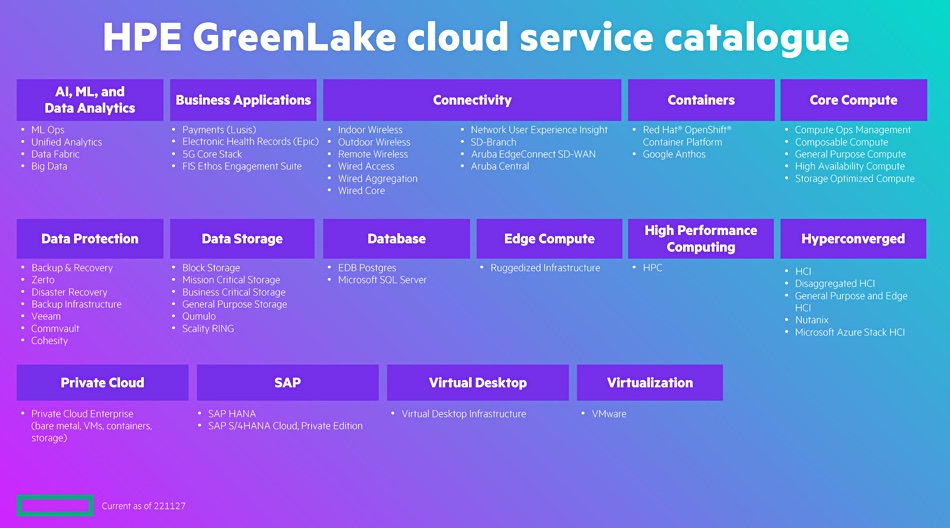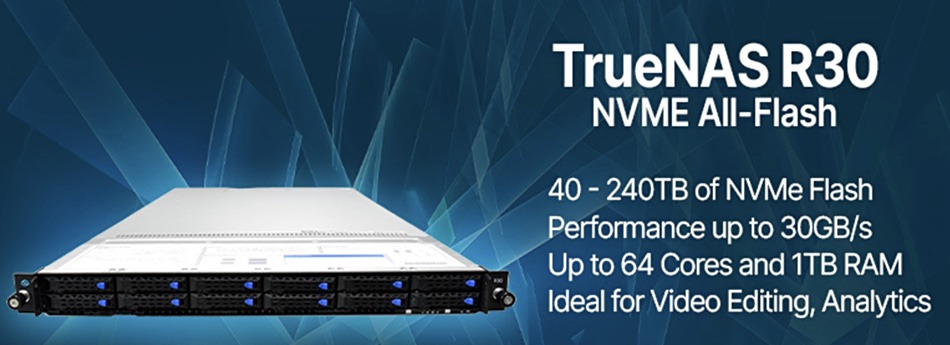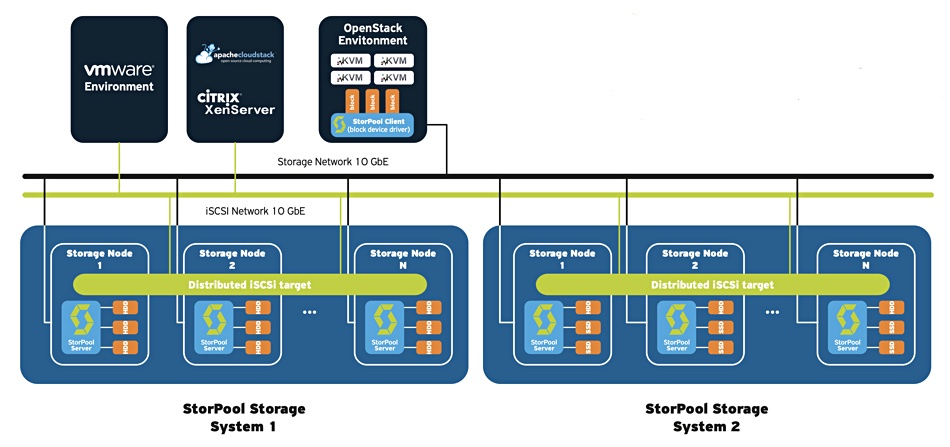Apache Cassandra v4.1 is a milestone release that’s mainly a feature update geared toward preparing for the major changes for developers in 5.0. Significant core services changes have been made to make them pluggable so different options can be used without firing up a compiler. Limits and operations boundaries can be defined in a feature called Guardrails. There are pluggable interfaces for storage formats, networking, and security. There are new native functions to convert unix time values into C* native types: toDate(bigint), toTimestamp(bigint), mintimeuuid(bigint) and maxtimeuuid(bigint) – critical for IoT-style workloads. New floor functions can also be used to group by a time range. The big, breaking changes are lining up behind 5.0, such as a new indexing engine, major changes in the CQL protocol to support new queries, and of course, ACID transactions.
…
IT Infrastructure supplier DH2i said its DxEnterprise multi-platform smart high availability clustering software has earned Red Hat OpenShift certification on Red Hat Enterprise Linux.
…
HPE announced its GreenLake for Private Cloud Enterprise, which offers expanded container deployment options for Kubernetes with Amazon EKS Anywhere from AWS, and infrastructure-as-code and cloud-native toolchains to support customer’s DevOps and continuous integration and continuous deployment (CI/CD) environments. There are six workload-optimized instances for general purpose, compute, memory, and storage available on GreenLake for Private Cloud Enterprise with rate card pricing that delivers a pay-as-you-go consumption model. The GreenLake for PCE ecosystem now includes GreenLake for Red Hat OpenShift Container Platform – available in Q12023, and the recently announced GreenLake for VMware. Consumption analytics enhancements deliver improved usage and cost analytics of applications for AWS, Azure and GCP. GreenLake for Data Fabric and Ezmeral Unified Analytics are available through an Ezmeral early access program.

…
Infinidat Field CTO Ken Steinhardt is retiring from Infinidat on Dec 31.
…
iXsystems announced TrueNAS SCALE 22.12 “Bluefin”, the second major version of its hyperconverged open source storage OS. It provides: FIPS-140 Security Kubernetes CSI Driver; new cluster management APIs to reduce downtime when replacing a gluster node; Docker OverlayFS; Virtualization Improvements; USB device pass-through and CPU pinning; Apps GPU Acceleration and iX-Storj service; and Globally Distributed Storage with Web 3.0 technology. It also announced the clusterable TrueNAS R30 system with 16 NVMe Gen4 SSDs and two dual-port 100GbE NICs in a 1U package. Each node is capable of over 30GB/sec bandwidth and a cluster scales out to hundreds of GB/sec for clustered file and object workloads.

…
Kioxia CM6 and CD6 PCIe 4.0 NVMe SSDs and PM6 Series of 24GB SAS SSDs have gained Windows Server 2022 Software-Defined Data Center (SDDC) certification, when using Storage Spaces Direct. The Storage Spaces Direct feature of Windows Server creates a software-defined storage setup, combining SSDs on clustered servers and allowing the sharing of storage resources in converged and hyperconverged IT infrastructures. Users can scale out storage capacity by adding more drives or more servers in the cluster. Storage Spaces Direct automatically onboards the new drives and rebalances the storage pool.
…
Lenovo announced globally it reached six percent market share and #5 in total market share for the first time, according to IDC’s December 2022 Storage Tracker. It is also #1 Entry Storage provider in EMEA based on revenue. Lenovo is at #1 in the “Price Bands 1-4” category, for the first time. Lenovo EMEA grew faster than the rest of the EMEA market – +36.8% year-on-year in vendor revenue terms – for this time period.
…
We heard Luke Quick, VP OEM Sales, was laid off from composability startup Liqid along with other OEM sales team members. Sumit Puri, CEO & Cofounder, Liqid, told B&F: “The commitment to Liqid’s Dell strategy remains strong as ever. We had a minor workforce reduction earlier this week that affected a pair of OEM team members. However, we still have a strong Dell OEM team and plan to grow the greater OEM organization in 2023.”
…
NetApp says Amazon FSx for NetApp ONTAP now has FedRAMP Moderate authorization in US East (N. Virginia), US East (Ohio), US West (N. California), and US West (Oregon), and FedRAMP High authorization in AWS GovCloud (US) Regions. NetApp is moving for authorization of other NetApp services. NetApp Cloud Insights and CloudCheckr (part of Spot by NetApp) are currently in process for FedRAMP.
…
Software-defined storage supplier OpenDrives has appointed Izhar Sharon as CEO. He brings 25 years of enterprise data storage expertise leading revenue growth and company scale for companies such as Infinidat (ex-president), IBM and Dell EMC. His appointment builds the debut of OpenDrives’ next-generation enterprise IT and cloud management solutions, and also follows a series of strategic hires from Quantum, Kyndryl, Unisys and DreamWorks Studios. Ex-CEO David Buss, who led OpenDrives as CEO in achieving 92% year-over-year revenue growth during his three-year tenure, becomes a strategic advisor to the board.
…

Qumulo announced that one of its original founders, Aaron Passey, has returned to the company and be an integral part of the engineering leadership team. He will work closely with chief technology officer Kiran Bhageshpur. Passey left his Qumulo CTO role in August 2016, later joining Dropbox as a principal engineer, leaving in April 2021. He returned to Qumulo this month. A Passey LinkedIn post said: “I have some unfinished business to attend to. … we aren’t the dominant player in the storage industry. We haven’t redefined the industry from the ground up. We still have some work to do. … My new role is the most senior engineer in engineering. I will help build a culture of innovation in service of the customer.”
…
Rubrik announced that existing board member John W. Thompson, former Microsoft chairman and Symantec CEO, is now the lead independent director of Rubrik’s board.
…
Samsung Electronics and NAVER Corp are jointly developing semiconductor products tailored for hyperscale artificial intelligence (AI) models using Samsung’s computational storage (Smart SSD), processing-in-memory (PIM) and processing-near-memory (PNM), and Compute Express Link (CXL) technology. NAVER will refine its >200 billion parameter HyperCLOVA hyperscale language model and improve its compression algorithms to create a more simplified model that significantly increases computation efficiency. Samsung Electronics announced on Dec. 12 that it had built a computing system by adding its PIM chip to 96 x AMD MI100 GPUs. Business Korea reported that When Samsung trained the T5 language model algorithm with this system, its performance improved 2.5x and its power consumption dropped by 2.67x, compared to when PIMs were not used.
…
Colin Presly, senior director, Office of the CTO at Seagate, has made some predictions for 2023. (1) Domain-specific silicon will increasingly be used to manipulate data movement. (Think hardware-based compression and dedupe and AI- and ML-based data manipulation methods.) (2) Emerging interfaces will simplify internal storage systems complexity. (Think CXL, NVMe & NVMeoF). (3) HAMR technology will become more widely commercially available. (4) Cloud-native software will gain more momentum. (5) The “Reduce, Reuse, and Recycle” mandate will become more important.
- Reduce. At the device level, we want to reduce the data movement via techniques like compression. By reducing the data written, the total power consumed is also lowered.
- Reuse. At storage device level, reuse comes from using secure erase to wipe the data from the storage device before returning that drive back for resale.
- Recycle. Data storage companies look at ways to recycle the material from different components in the device and use back into the production cycle.
…
Storage Review reports that a Seagate ppresentation at an OCP summit revealed its NVMe-interface disk drives are getting close to engineering sample status.
…

StorPool Storage announced that RapidCompute, Pakistan’s first enterprise-class public cloud computing platform, has deployed its primary storage platform as part of an IaaS offering for local enterprises and small businesses. RapidCompute wanted to upgrade its infrastructure from NexentaStor and evolve its storage system to gain more flexibility and operational efficiency. Two primary storage systems are already deployed. One is a 9-node deployment connected over iSCSI to a CloudStack environment managing XenServer hypervisors. The other is a 5-node deployment connected to OpenStack with KVM. The full case study can be found here.
…
Toshiba has announced 1, 2 and 4TB versions of its Canvio Basics hard disk drives. These are in 2.5-inch format and for external use hooked up to PCs and notebook. Their USB 3.2 Gen 1 interfaces, which deliver power, allow transfer speeds of up to 5.0Gbit/sec to be supported and they are compatible with legacy USB 2.0. Their dimensions are 78mm x 109mm x 14mm for the 2TB and 1TB versions, weighing <150g, and 78mm x 109mm x 19.5mm dimensions for the 4TB version, which weighs 217.5g. The drives come with a matt black finish, are ready to use with Windows, and will be available in 1Q 2023.
…
Global file and object access supplier Vcinity announced GA of its Vcinity Access object offering and version R3.2.3 of its Ultimate X (ULT X) file service system. Vcinity Access allows cloud native applications that use S3 from AWS or S3-compliant object storage to remotely access and instantly operate on that data across hybrid or distributed cloud environments, with local-like performance. Vcinity Access features include 3-node HA VM scale-out cluster, offering scalable performance for hybrid on-prem (VMware ESXi) and AWS environments, deployment automation and integration into common cloud and on-prem automation platforms, plus diagnostic capabilities using real-time monitoring virtual sensors and visualization tools.
ULT X r3.2.3 includes hardware clustering support, Amazon EC2 F1 instance support, automation and API support, and file system enhancements.
…
Active data replication supplier WANdisco has signed its second follow-on agreement worth a further $13.2 million with a large European automotive components supplier. The combined Commit-to-Consume contract value from the three agreements with this Client in 2022 now totals $25.3 million. Terms were originally signed with this Client to replicate automobile sensor data to the AWS cloud. The initial data amount that was to be transferred has again exceeded initial requirements, driven by a significant customer win by the Client. WANdisco says it can execute enterprise-scale migrations extremely quickly – 1 tebibyte every 1 minute and 27 seconds (12,638MB/sec) – and with zero downtime, disruption, or data loss.








